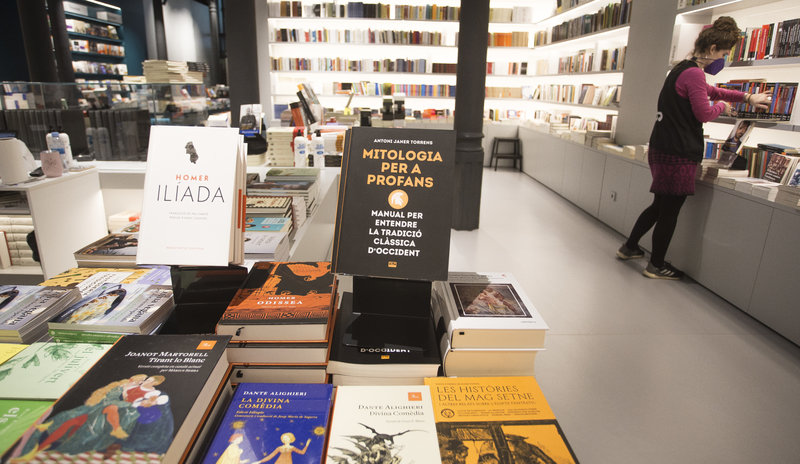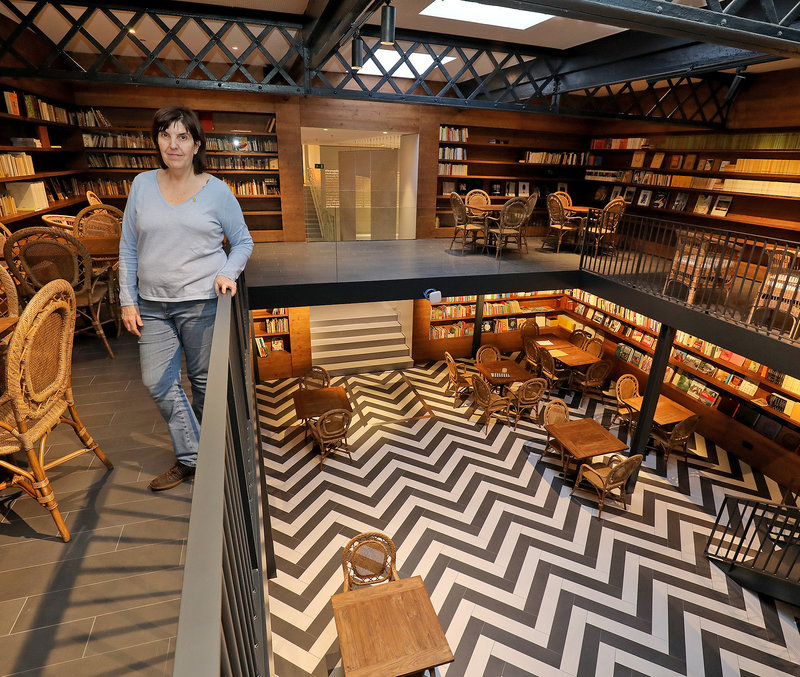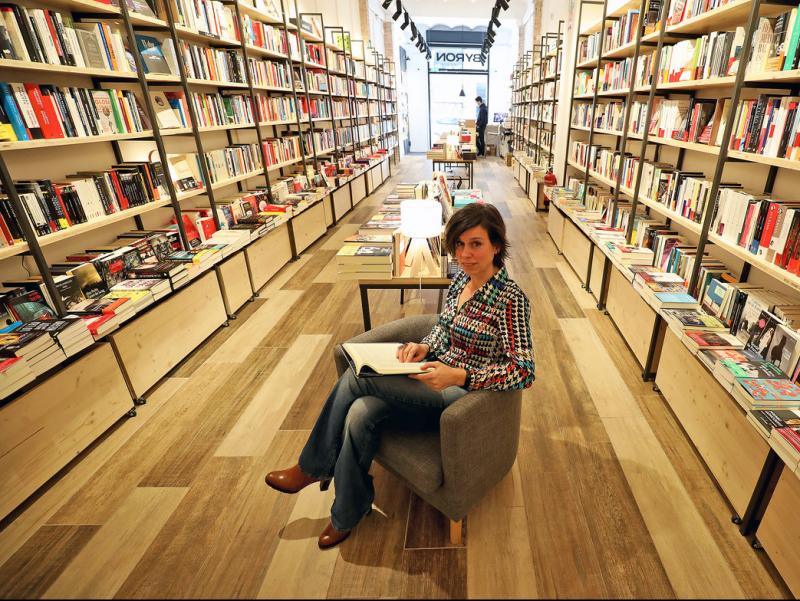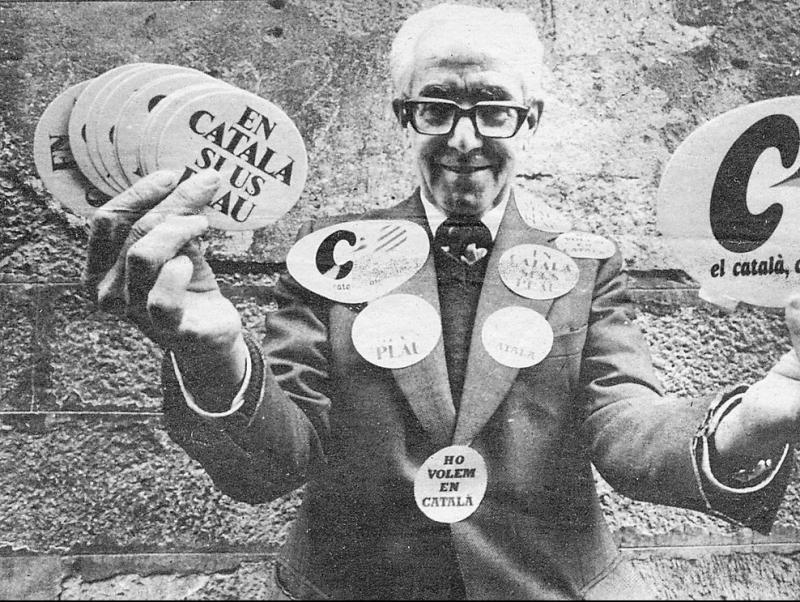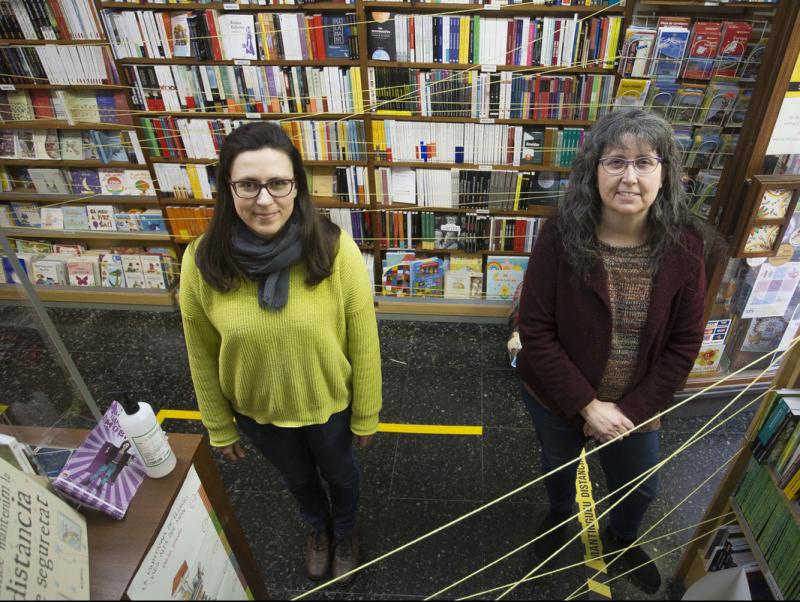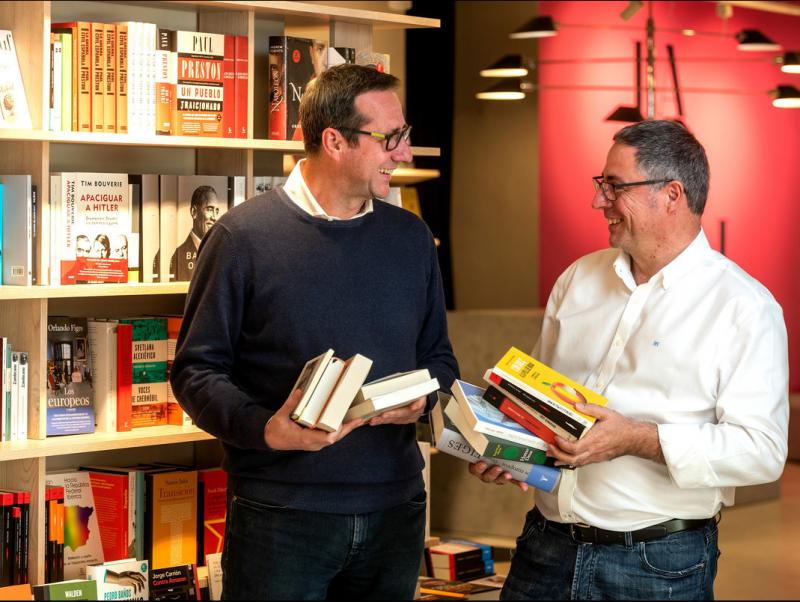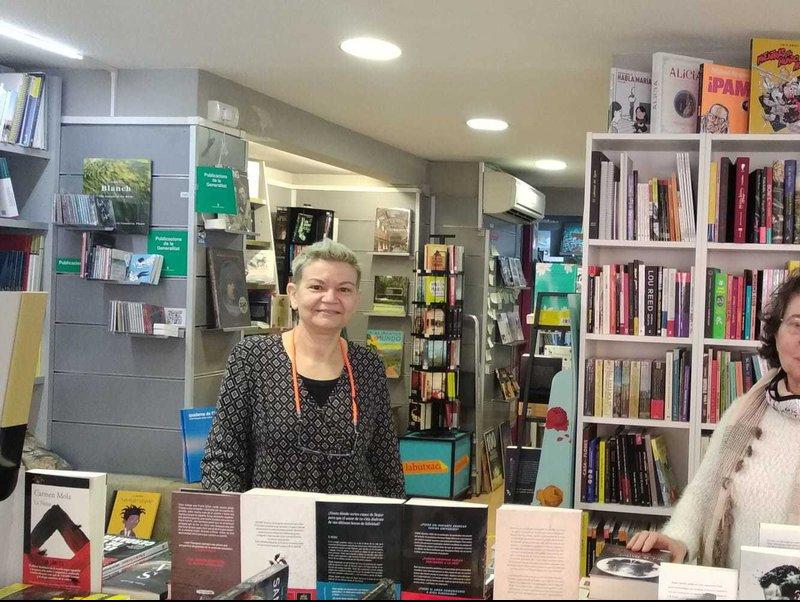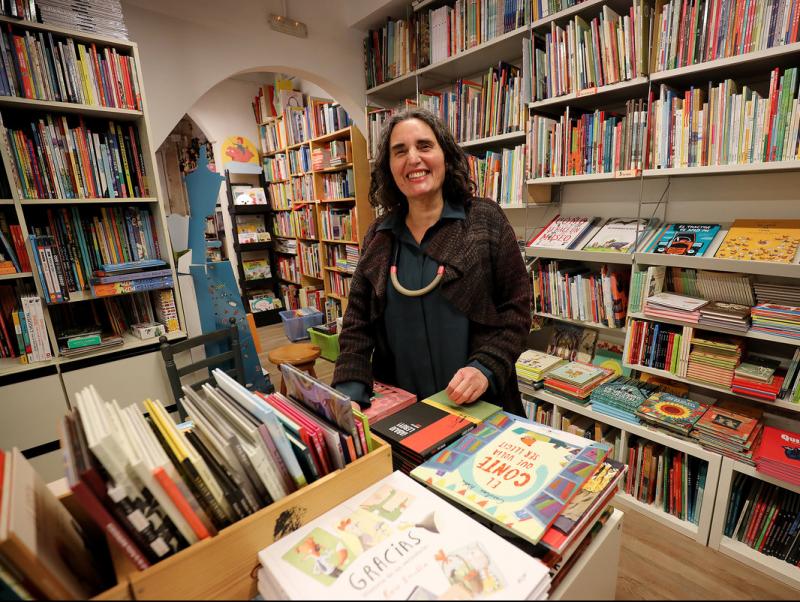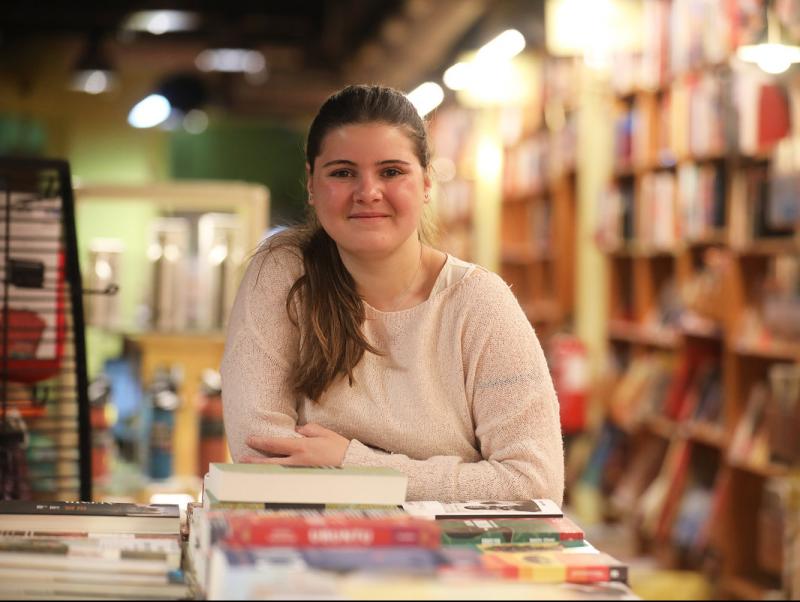The plan was to open for Sant Jordi’s Day last year but the pandemic changed everything. Yet, in May 2020, Ona Llibres opened in the centre of Barcelona, as a major initiative dedicated to books in Catalan. A large venue with several rooms, it includes an area for fiction and non-fiction by both Catalan authors and works translated into Catalan, a section for children’s and young people’s books, a music section, and a space dedicated to art books and first editions. At the helm is a bookseller who used to run the historic (now closed) Ona bookshop on Gran Via that was founded in 1962. In 2013, Montserrat Úbeda revived the bookshop on Gran de Gràcia (where it still stands) and now, with the financial support of businessman Tatxo Benet, this second project aims to become an epicentre of culture, with exhibitions, conferences, concerts, courses and workshops.
How did your vocation come about?
I come from a publishing house. My father did everything in very difficult times. Nobody wanted to sell a book in Catalan. I was going to study at a school next to Ona, but I didn’t want to study, I wanted to paint. My father told me to work. And I fell in love with Ona and never wanted to leave. My vocation came from falling in love with my country. It was a very politicised bookshop and you had to adopt a position, a bit like with the independence process. In Gràcia, I was persecuted, books were destroyed, paramilitaries came and threatened me... There are people who get angry and insult me because we only have books in Catalan.
What was it like being so young as an apprentice in the old Ona.
I trained at Ona, it was like a bookshop school. It’s not like other booksellers, although neither better nor worse. We were born in a very complicated time, during the Franco dictatorship. Entering Ona, for me, was a great discovery. They hadn’t told me anything about Pedrolo, Capmany, Roig... and all these authors were in Ona.
So, Ona was an education?
All bookshops take different directions, but in the end the connecting link is customer service. The Gran Via Ona had its way of working, of treating the customer that was very different from what existed then. We were old school, where the most important thing was customer service. Then everything became computerised and perhaps a little of that personalised attention was lost. The computer works great for many things, but not so much for others.
And the concept of books in Catalan has been maintained in the new Ona?
When Ona closed I worked in other bookshops and the concept was the opposite: 90% were books in Spanish. There was only a small percentage in Catalan. I don’t consider myself bilingual. My language is Catalan, and that’s it. The second language I learned was Spanish, just as it may have been Italian. I think, feel and dream in Catalan. We have learned other languages by imposition. When I go to other bookshops I see this lack of protection of our language. It’s true that there are more new books in Spanish, and perhaps this is why it’s the priority. It’s not that I’m not interested in the Spanish language, I have a lot of books at home. But Catalan has a lot to offer. If we are to be a bookshop specialising in Catalan, then we must do it well. We are always under construction, because you can never have everything. There are many authors who lack a space and, little by little, they may be able to gain that space. I’m not interested in giving priority to Spanish. In fact, I don’t have enough space for all the Catalan books.
So the philosophy remains the same?
Totally. It was one of the conditions. What we’ve been able to do thanks to Tatxo is to have a good space for Catalan literature translated into many languages. It was a shortcoming in the country. We have authors like Rodoreda, Cabré... We have books translated into Italian, English, German, Hungarian, Serbian, Slovenian, Norwegian... This is something a lot of people demanded from us. It’s a foreign section that I couldn’t have in the other Ona due to a lack of space and money.
Was opening a business like this in the middle of a pandemic brave?
It’s not a matter of courage. It’s a matter of survival. We never imagined this would happen. The staff structure was not designed for a pandemic. But we need to live with it. And I’m lucky to have Tatxo because financially this is titanic. Let’s not fool ourselves, from raising the shutter, it’s all expenses. Unfortunately, people find it difficult to spend money on books. There may have been a resurgence, but things continue to be up and down. You sell a lot for Christmas and Sant Jordi’s Day and then we have to live through a dry patch. Our sector has always been dependent on particular moments in the year.
bookshops

